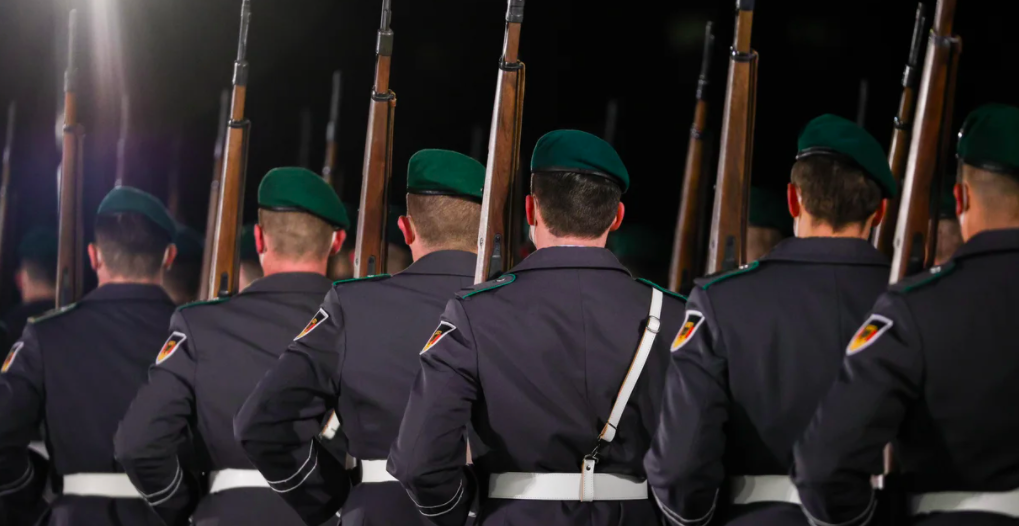
The Russia-Ukraine War brought radical changes with it to German policy. Chancellor of Germany Olaf Scholz, in his speech on February 27, acknowledged that “a new era has been entered after the attack on Ukraine”. These ongoing events paved the way for an unprecedented increase in Germany’s defensive capabilities and armament. The German Foreign Minister made speeches for Germany to drop its exceptional restraint in its foreign and security policy. Chancellor Olaf Scholz has announced that Germany will increase its defense budget by more than 30% until it exceeded the NATO benchmark of 2%, a level strongly encouraged by the USA. The announcement was received positively by the German public against a suddenly resurgent Russian threat.[1]
Germany reaffirms its commitment to nuclear deterrence and NATO’s participation in the nuclear sharing arrangement, emphasizing the importance of defense-industrial cooperation to equip Europeans with the appropriate means to defend themselves - by force if necessary. In this context, the German top military commander announced that the government would endorse additional deployments to secure the allies in the east in response to the Russian aggression.[2]
After the end of the Cold War, Germany cut off its defense budget and used its reduced military not to protect its homeland but to assist NATO missions abroad. During a NATO joint training exercise in 2015, German troops had to use black-painted broomsticks instead of guns due to equipment shortages.[3] After the Ukraine-Russian war, the risk of its expansion at Europe’s eastern flank accelerated Germany’s armament.
It is emphasized that the rest of Europe will feel more secure as Germany rebuilds its army. This attitude of Germany can be seen as a move in favor of Ukraine. As the war continues, it brings huge economic, geopolitical and financial losses for Russia every day. Olaf Scholz announced that he wants to cut most of the banks in Russia from SWIFT and freeze all the assets of the oligarchs. Scholz’s rhetoric to move away from raw material dependence on Russia is a factor that will negatively affect Russia. In addition, Germany is trying to prevent Moscow from doing the gas transfer alone or starting to use it to manipulate Berlin politics and thus the entire European Union. Accordingly, two large gas ports will be built in Germany to reduce foreign dependency.[4]
Considering the German defense debate, it can be argued that the population is more aware of major threats and public support for German defense and security to have new resources is increasing. The great shock to many Germans by Putin’s aggression will have a significant impact on building public support for Berlin’s new policy. Already, national polls show an overwhelming majority in favor of both arms exports to Ukraine and new defense funding.[5]
Germany declared that a functioning and well-equipped armed forces is a necessary condition for a forward-looking and active German foreign and security policy, and within this framework, investments have started to develop its armed forces. The Ukrainian-Russian War has already re-energized the debate on the defense architecture of Europe. Policymakers in Berlin are trying to strengthen Germany militarily while at the same time trying to reduce dependence on Russia economically. These changes indicate that a new European Ostpolitik as well as “weltpolitik” will emerge from Berlin on the interests and concerns of other central and eastern European countries within the EU, NATO and beyond. According to the common view on the European side, peace in Europe will require defense against Russia.
*Photograph: https://worldcrunch.com/opinion-analysis/germany-rearmament
[1]Robert Farley, “Russia’s Nightmare Comes True: Germany’s Military Is Back”, 19FortyFive, 8 March 2022, https://www.19fortyfive.com/2022/03/russias-nightmare-comes-true-germanys-military-is-back/
[2]Rafael Loss & Angela Mehrer, “How Germany can sustain its policy revolution”, ECFR, 4 March 2022, https://ecfr.eu/article/how-germany-can-sustain-its-policy-revolution/
[3]Rob Schmitz, “With war on its doorstep, Germany plans a major military buildup”, npr, 22 March 2022, https://www.npr.org/2022/03/22/1087859567/germany-military-buildup-russia-invasion-ukraine
[4]Slawomir Sierakowski, “What The Militarization Of Germany Means For Europe”, DGAP, 1 March 2022, https://dgap.org/en/research/publications/what-militarization-germany-means-europe
[5]Sophia Besch & Sarah Brockmeier, “Waking A Sleeping Giant: What’s Next For German Security Policy?”, War On The Rocks, 9 March 2022, https://warontherocks.com/2022/03/waking-a-sleeping-giant-whats-next-for-german-security-policy
© 2009-2025 Center for Eurasian Studies (AVİM) All Rights Reserved
No comments yet.
-
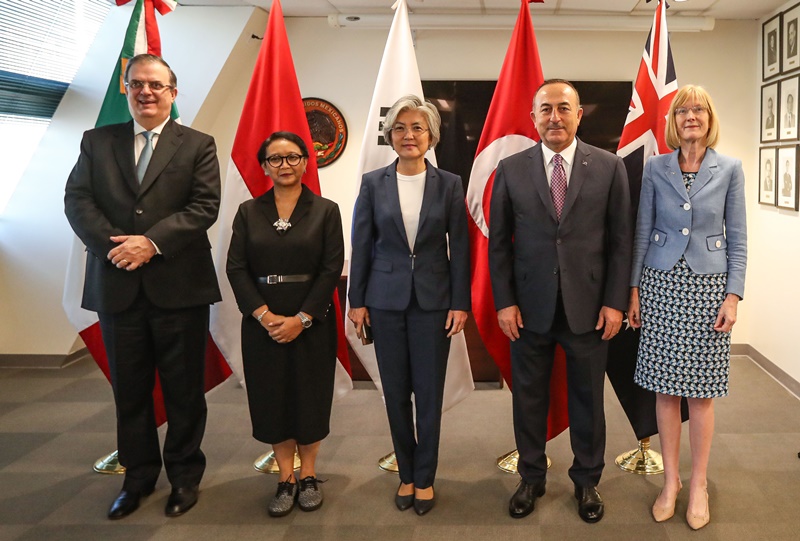 THE ROLE OF TURKEY IN G20 AND MIKTA
THE ROLE OF TURKEY IN G20 AND MIKTA
Şevval Beste GÖKÇELİK 12.03.2021 -
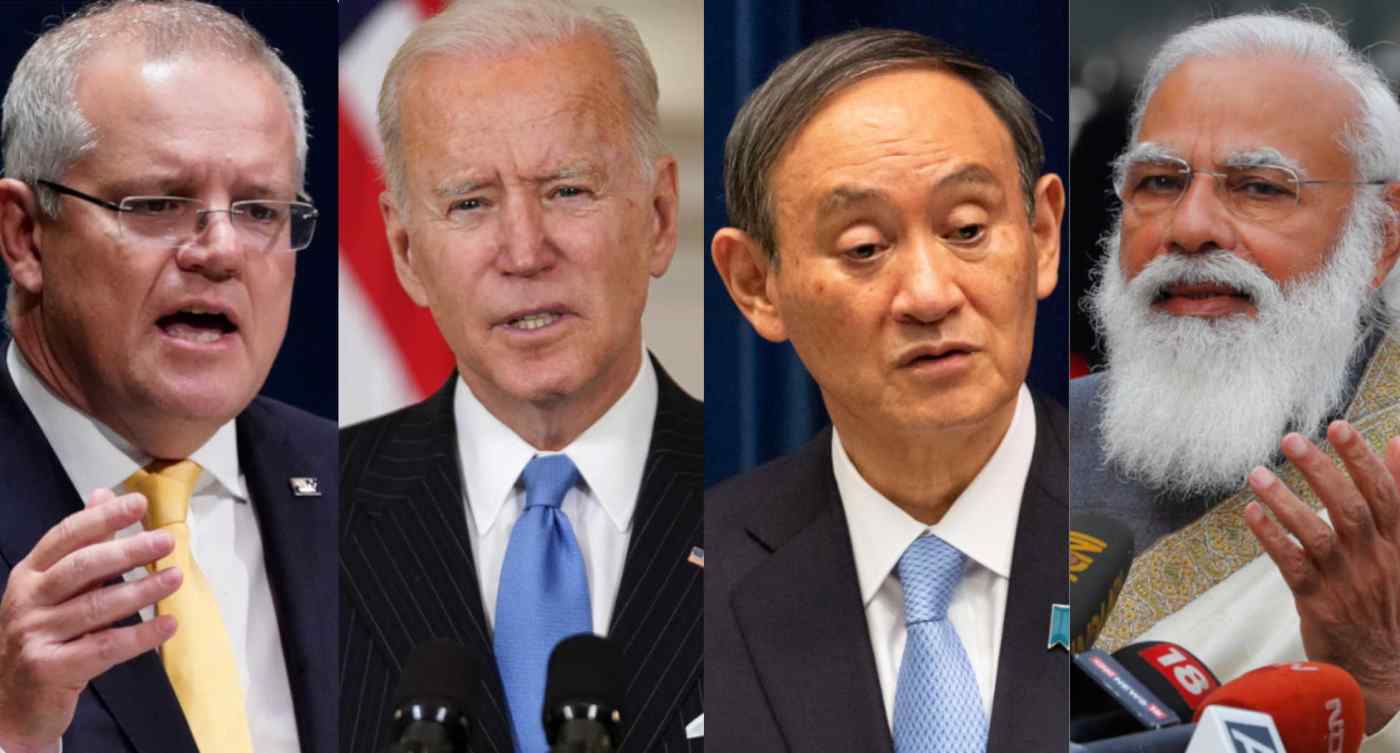 THE QUAD: TURNING POINT FOR THE INDO-PACIFIC
THE QUAD: TURNING POINT FOR THE INDO-PACIFIC
Şevval Beste GÖKÇELİK 01.04.2021 -
 IS THE DOMINANT ROLE OF THE DOLLAR IN GLOBAL FINANCE CHANGING?
IS THE DOMINANT ROLE OF THE DOLLAR IN GLOBAL FINANCE CHANGING?
Şevval Beste GÖKÇELİK 26.05.2022 -
 THE DOCUMENTS EXPOSING CHINA’S HUMAN RIGHTS VIOLATIONS
THE DOCUMENTS EXPOSING CHINA’S HUMAN RIGHTS VIOLATIONS
Şevval Beste GÖKÇELİK 27.12.2021 -
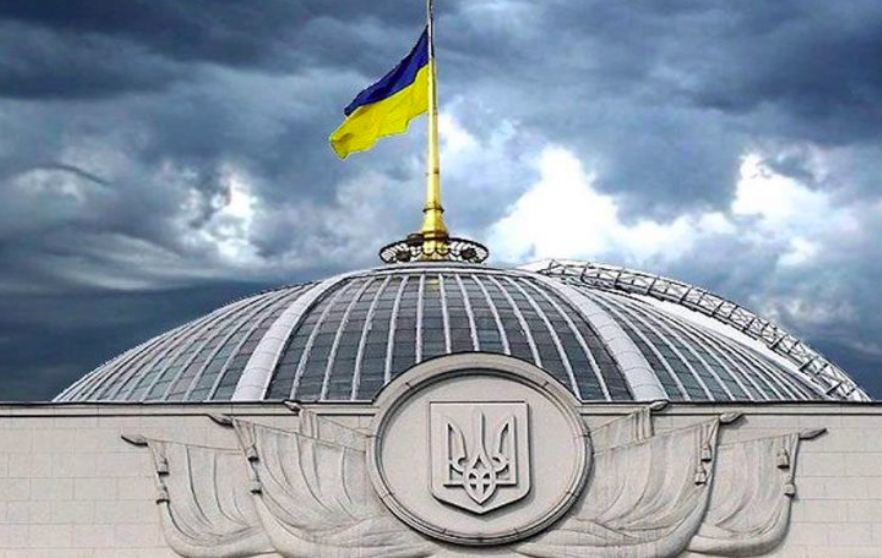 UKRAINE’S DECISION CONCERNING “THE STATUS OF INDIGENOUS PEOPLES”
UKRAINE’S DECISION CONCERNING “THE STATUS OF INDIGENOUS PEOPLES”
Şevval Beste GÖKÇELİK 11.08.2021
-
SYMPOSIUM TITLED "PROSPECTS FOR TURKISH-ARMENIAN RELATIONS" AT ANKARA PALACE
AVİM 29.04.2015 -
COOPERATION AT THE WIDER BLACK SEA BASIN AND CHANGING TIMES
Alev KILIÇ 28.05.2013 -
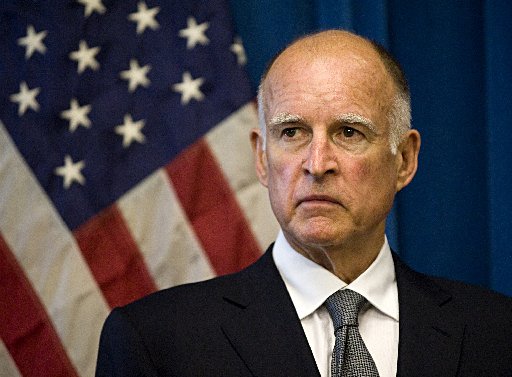 COMMON SENSE HAS WON: CALIFORNIA GOVERNOR DENIED THE PAROLE OF SASSOUNIAN
COMMON SENSE HAS WON: CALIFORNIA GOVERNOR DENIED THE PAROLE OF SASSOUNIAN
Hazel ÇAĞAN ELBİR 17.05.2017 -
 THE ECHR PERINCEK V. SWITZERLAND CASE: THE GRAND CHAMBER HAS RULED IN FAVOR OF DOGU PERINCEK
THE ECHR PERINCEK V. SWITZERLAND CASE: THE GRAND CHAMBER HAS RULED IN FAVOR OF DOGU PERINCEK
Aslan Yavuz ŞİR 14.10.2015 -
ARMENIAN GENOCIDE FILMS FAIL TO WIN ACCLAIM
Ömer Engin LÜTEM 08.09.2014
-
25.01.2016
THE ARMENIAN QUESTION - BASIC KNOWLEDGE AND DOCUMENTATION -
12.06.2024
THE TRUTH WILL OUT -
27.03.2023
RADİKAL ERMENİ UNSURLARCA GERÇEKLEŞTİRİLEN MEZALİMLER VE VANDALİZM -
17.03.2023
PATRIOTISM PERVERTED -
23.02.2023
MEN ARE LIKE THAT -
03.02.2023
BAKÜ-TİFLİS-CEYHAN BORU HATTININ YAŞANAN TARİHİ -
16.12.2022
INTERNATIONAL SCHOLARS ON THE EVENTS OF 1915 -
07.12.2022
FAKE PHOTOS AND THE ARMENIAN PROPAGANDA -
07.12.2022
ERMENİ PROPAGANDASI VE SAHTE RESİMLER -
01.01.2022
A Letter From Japan - Strategically Mum: The Silence of the Armenians -
01.01.2022
Japonya'dan Bir Mektup - Stratejik Suskunluk: Ermenilerin Sessizliği -
03.06.2020
Anastas Mikoyan: Confessions of an Armenian Bolshevik -
08.04.2020
Sovyet Sonrası Ukrayna’da Devlet, Toplum ve Siyaset - Değişen Dinamikler, Dönüşen Kimlikler -
12.06.2018
Ermeni Sorunuyla İlgili İngiliz Belgeleri (1912-1923) - British Documents on Armenian Question (1912-1923) -
02.12.2016
Turkish-Russian Academics: A Historical Study on the Caucasus -
01.07.2016
Gürcistan'daki Müslüman Topluluklar: Azınlık Hakları, Kimlik, Siyaset -
10.03.2016
Armenian Diaspora: Diaspora, State and the Imagination of the Republic of Armenia -
24.01.2016
ERMENİ SORUNU - TEMEL BİLGİ VE BELGELER (2. BASKI)
-
AVİM Conference Hall 24.01.2023
CONFERENCE TITLED “HUNGARY’S PERSPECTIVES ON THE TURKIC WORLD"









